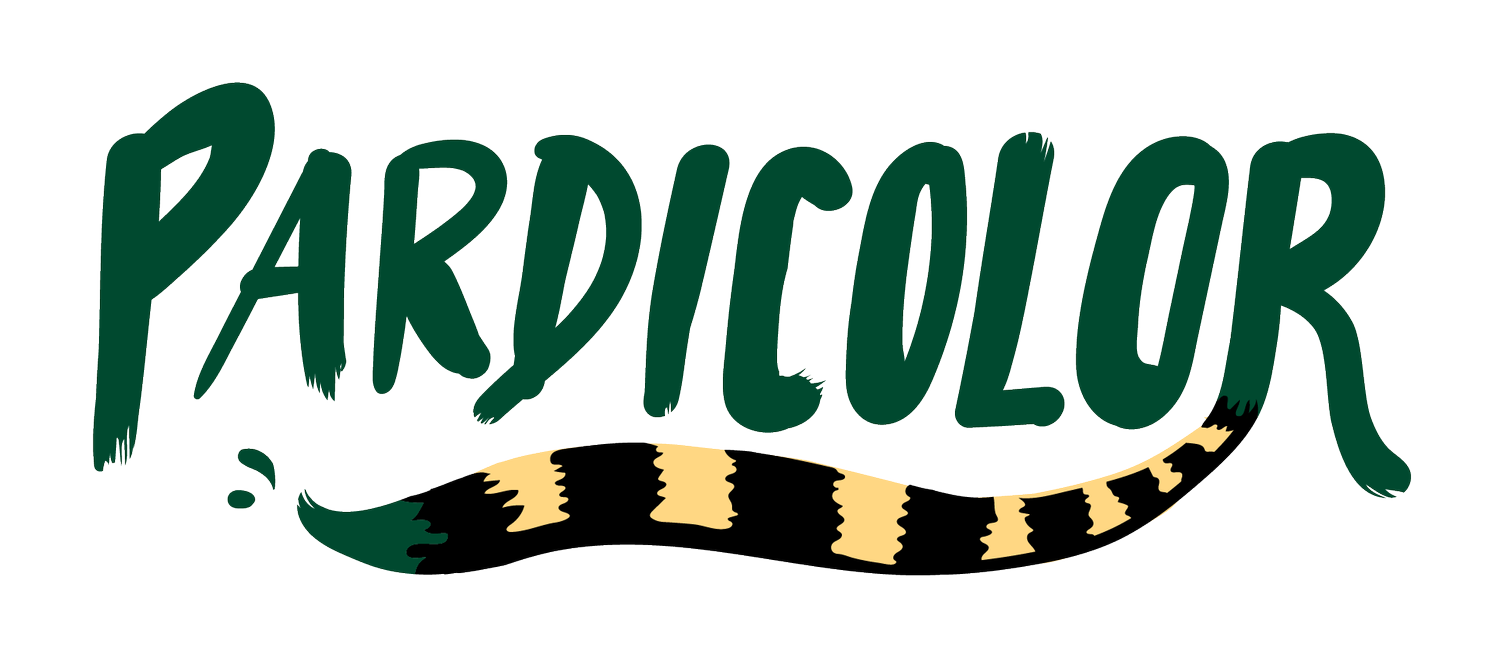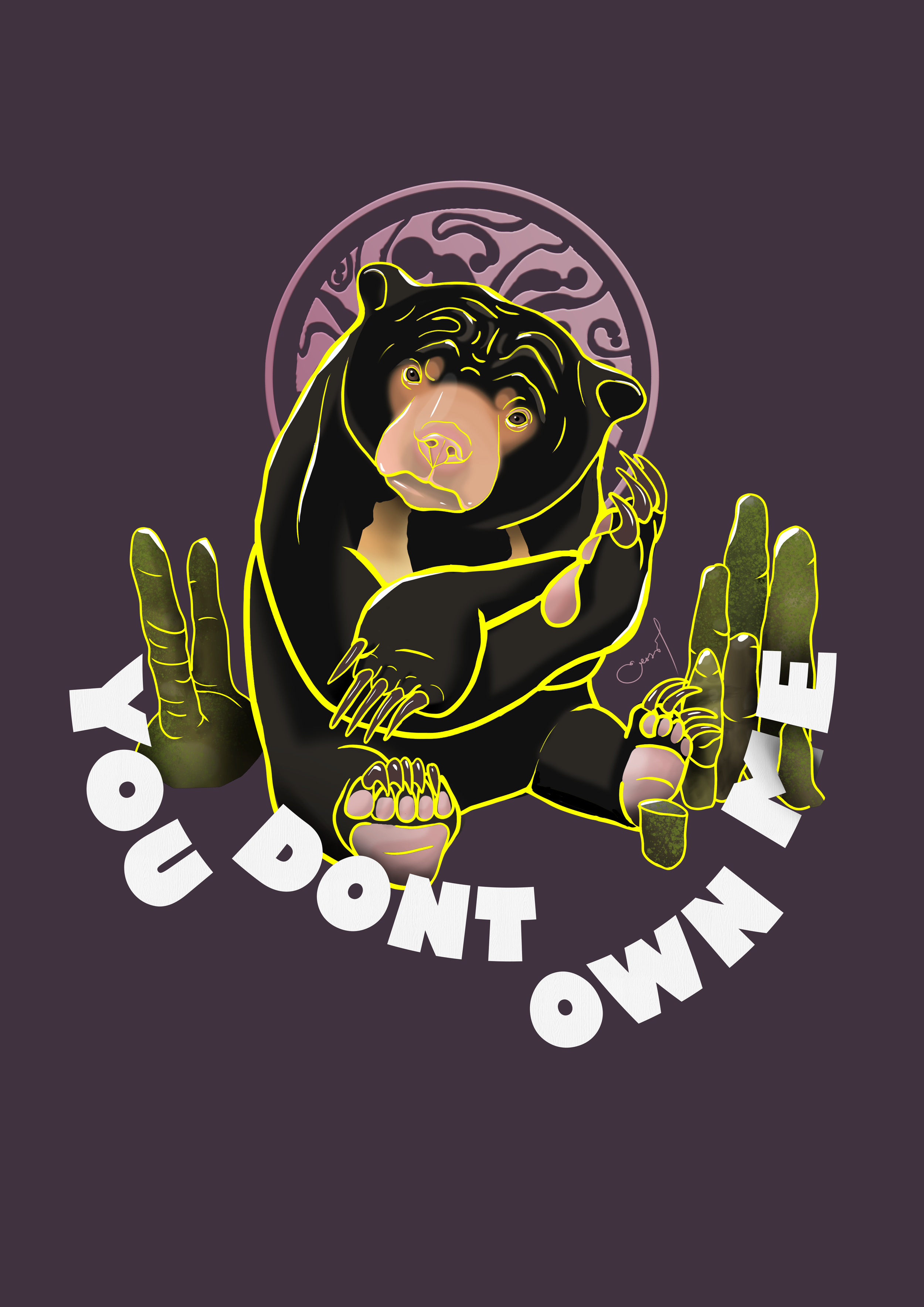
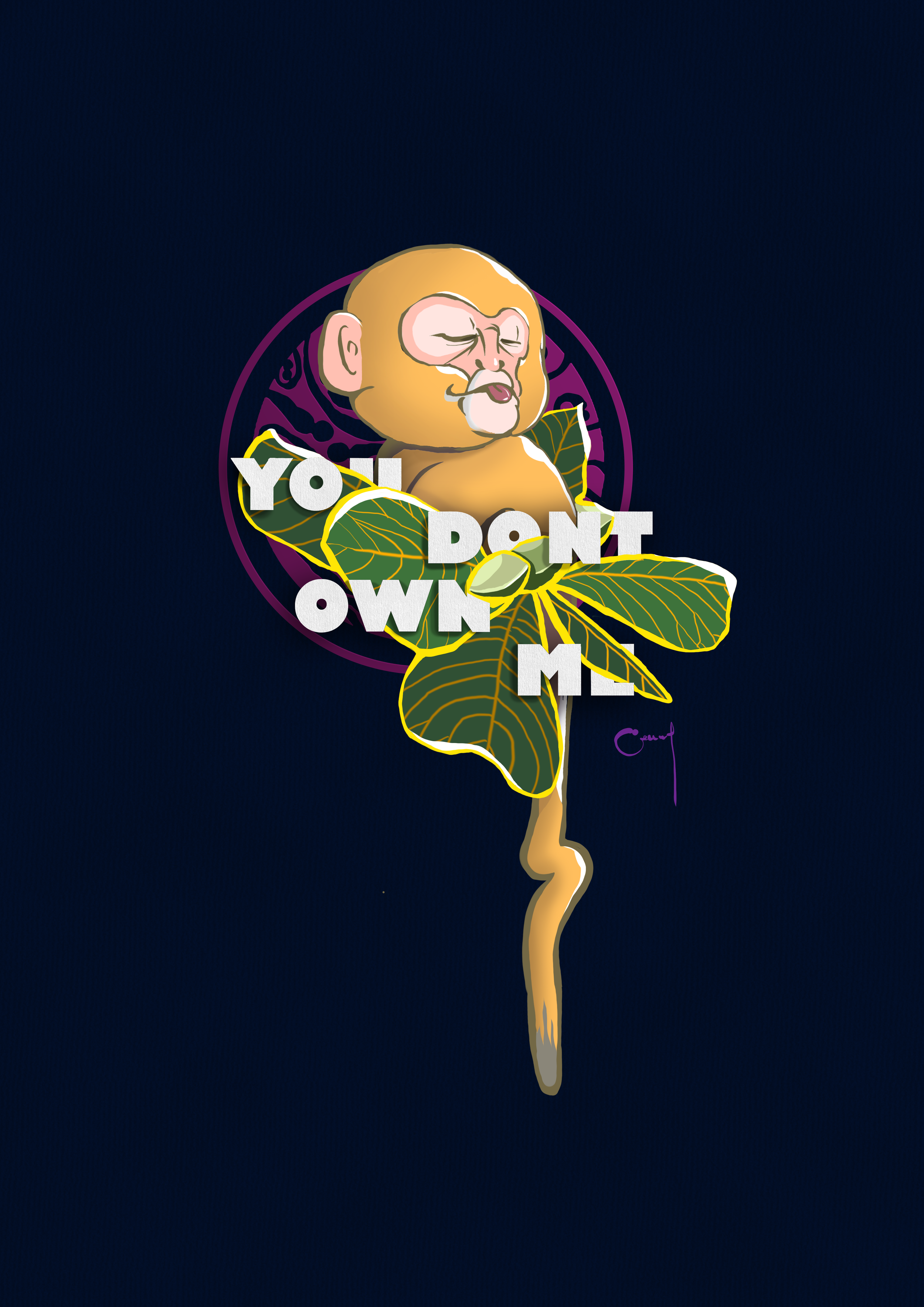
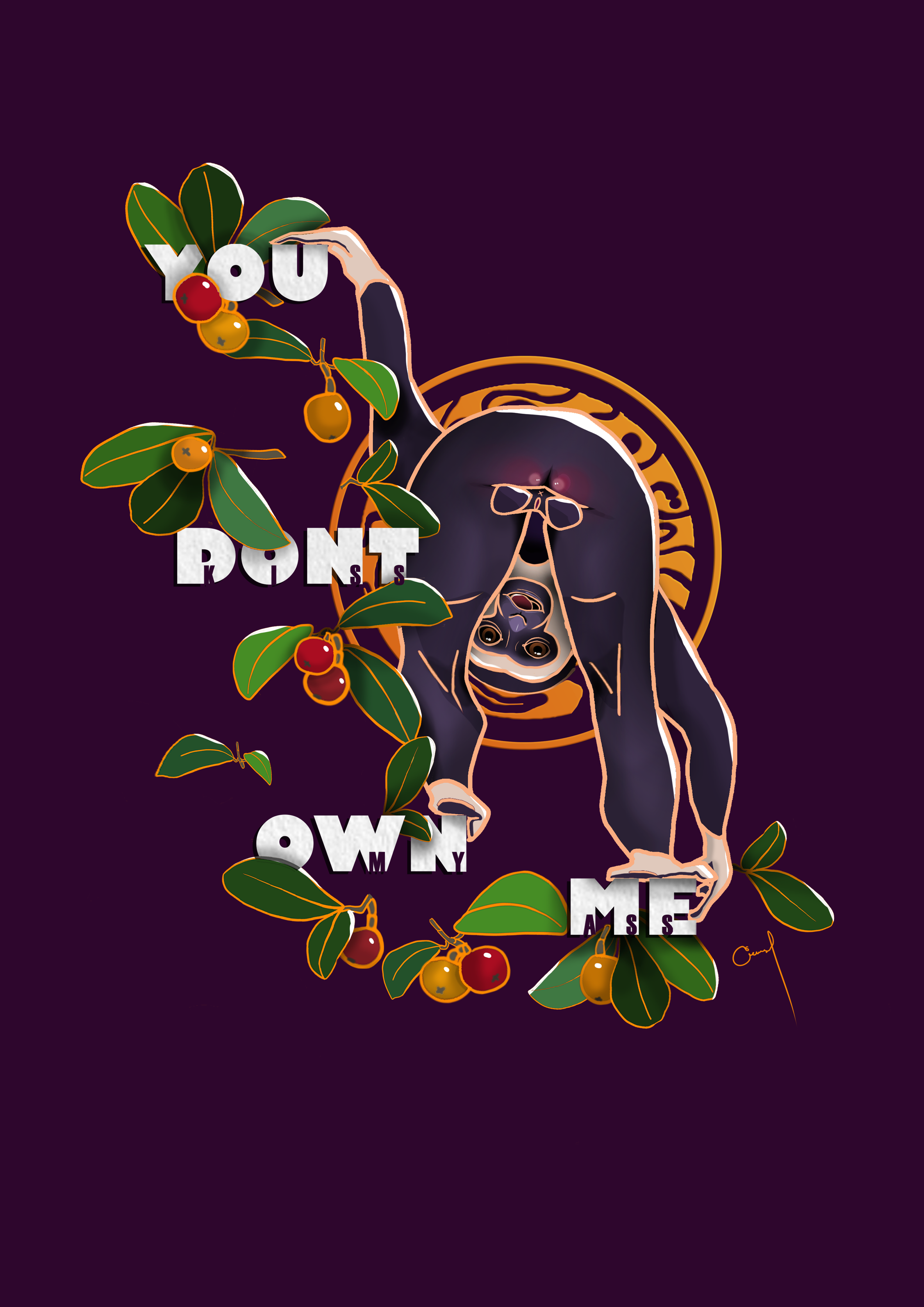
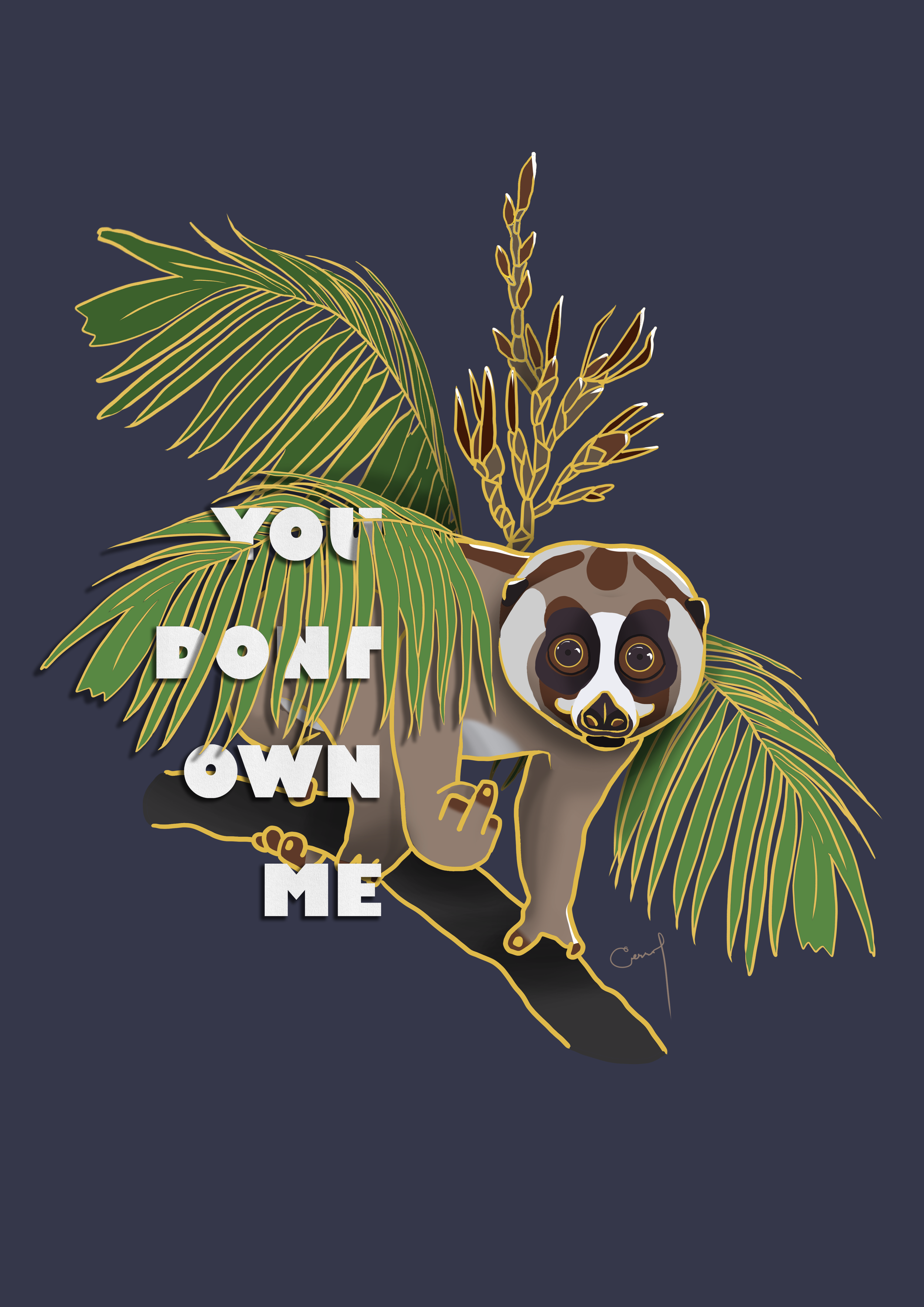
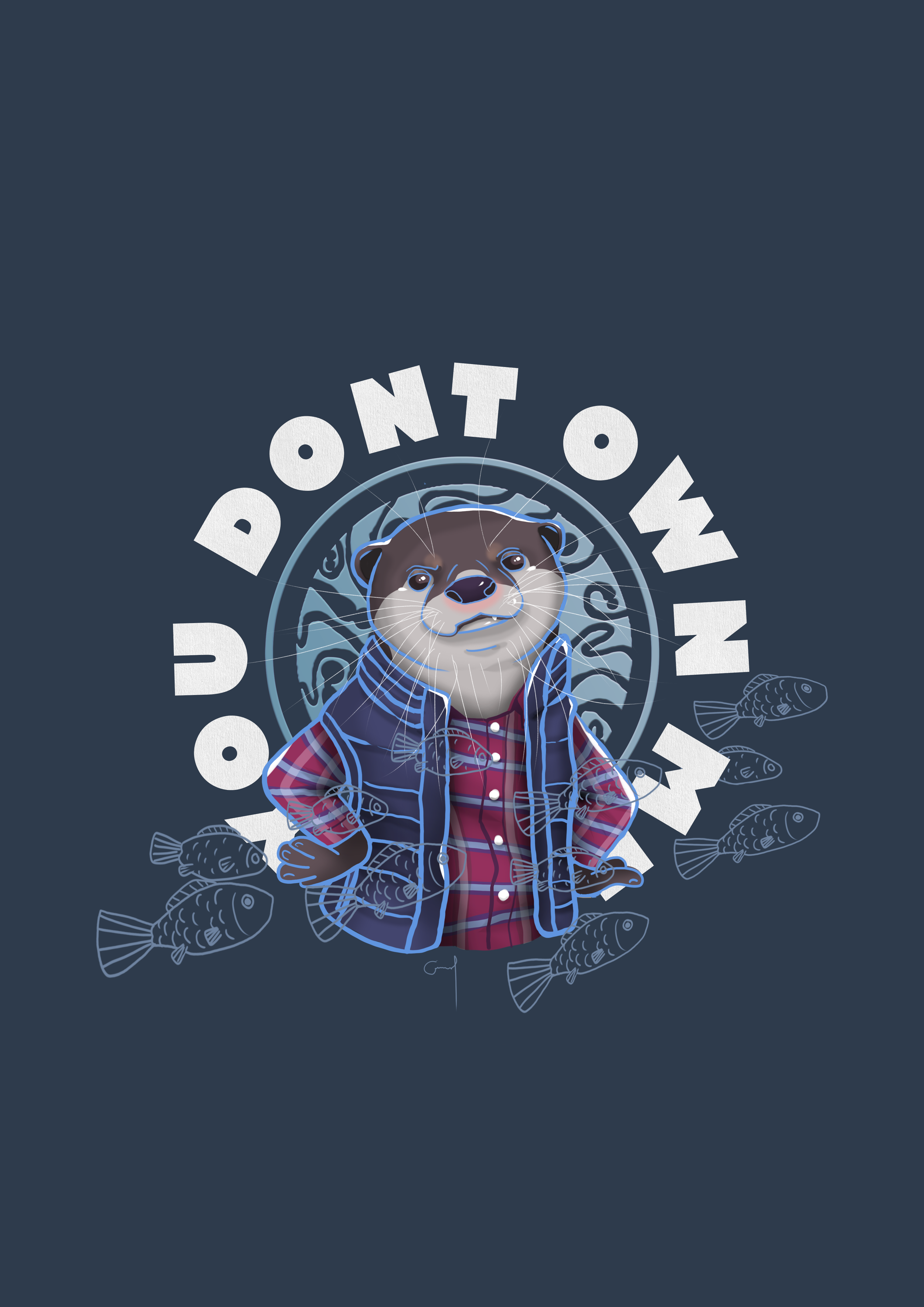
“YOU DON’T OWN ME”
Koh Jieh Long
MALAYSIA
In 2021 the PCAF supported Malaysia based artist Koh Jieh Long (aka KOHexist). Koh is currently pursuing a career in primatology research and conservation considering KOHexist to be an alter ego about "a human learning to exist and to coexist with wildlife".
‘You Don’t Own Me’ is a series of digital illustrations of wild animals that have been subjected to poaching and become victims of the illegal wildlife pet trade. Through this series Koh uses wildlife pets' voices to reach out to the public in order to raise awareness of the threats facing Malaysia’s native species. The informative text which accompanies each image in this exhibit is a fantastic resource for those wishing to learn more about each species as well as the NGOs and volunteer groups working to conserve wild populations.
All writings by KJL.
Hover over images
Small clawed otter
Among four otter species found in Malaysia, the small clawed otter is most at risk of the pet trade, probably because they come in smaller sizes. But all four otter species are given the highest protection under the legislation in Malaysia. Illegal online pet trade of otter babies has gone up in recent years, mainly due to the advancement of social media and influencers sharing cute videos with pet otters in dolls' dresses. Behind the scenes is often all kinds of bloody mess. Other than the parents possibly being made into fur coats, baby otters sold as pets will grow up and can bite very hard. Otters bite hard because they are predators in the wild; they catch fish and crabs to chew on, keeping the numbers of these prey species in control, or they grow too much which can be very unhealthy for an ecosystem. Taking otters out of nature to keep in a bathtub is the human-kind-of stupid. #letwildbewild To make things worst, otter pet owners treat them as if they were cats and dogs, feeding them kibbles which leads to otters' health issues; some even chained up which @$^@%!*.…
@malaysiannaturesociety has recently added otter conservation to their agenda, through "Malaysia Otter Network" formed by researchers and government officials. See also @wildotters and their project - @theottercollective for more otter arts.
Bornean sun bear
You don't keep a wild animal at home and expect for a happy ending. Unnecessary suffering will be inevitable either for you, for the animal, or for our ecosystem. Sun bears are like dogs in some fascinating ways. Sun bears bark like dogs; both have an acute sense of smell; both are equipped with canine teeth and claws...but as far as the "making a good pet for humans" goes, this is where the similarities end. Where dogs are called "man's best friend", sun bears are called "wild animals". A wild animal like a sun bear cub cannot be tamed and forgo their wild instincts within one or two generations. You don't keep a wild animal at home and expect for a happy ending. Unnecessary suffering will be inevitable either for you, for the animal, or for our ecosystem. They dig in the soil to look for termites and grubs; they climb tall trees and construct nests; they playfight with mates; and they extract honey from tree trunks using their sharp claws and long, long, 20cm tongues.
Suffering comes not just from sun bear cubs being sold as pets; sun bears are also sold to bear bile farming. Despite alternative synthetic or herbal products being cheaper and more effective…@bsbcc is an NGO that has brought global attention to the plight of the Bornean sun bear. Through their rehabilitation process, some sun bears will have a chance to be released back in the forest of Borneo; and lots of scientific research can be conducted to understand the behaviour, biology, and ecology of the least-studied bear in the world.
Sunda slow loris
The Sunda slow loris is an Endangered species, but still they are subjected to pet trafficking.
Lorises are nocturnal primates - active during the night. They mainly feed on exudates (gum) of trees, nectars...They are social animals, they groom, play, fight with one another, and they travel long distances to look for mates. The name of the slow loris would suggest that they are slow, and in normal circumstances, they do look slow; but they can also be quite fast! Like when they hunt for insects, and when running away from dangers. As pets, baby lorises are put in a human environment, which is the total opposite of everything mentioned above about lorises natural behaviour. They are exposed to bright, blinding lights; they are fed with cultivated, high-sugar fruits and rice; they are kept alone in small cages...and when they are tickled by their predator humans, which stresses them out and triggers their defense mechanism - raising arms over head - they are recorded in videos and made into GIFs for the internet to enjoy because their sufferings are "cute" to share among friends...utterly insulting to the venomous primates!
In Indonesia, there's @littlefireface and @kukangku to represent their lorises; In Malaysia, slow lorises are barely talked about. The @nightspottingproject does endeavour to introduce nocturnal species including lorises and colugos of Malaysia to the Malaysians and the world!
Dusky langur
The demand for keeping a dusky langur baby as a pet is high; everyday, people openly advertise dusky babies for sale, and people openly looking to buy one on social media.
Separating a child from their mother is extremely cruel; mothers are left devastated if not killed, babies are sold into the pet trade, kept under constant stress for lack of parents and proper care...all that just to give some human the pleasure of owning an exotic, endangered pet, illegally, for a few months, before the babies fall ill and die.
@langurprojectpenang is a citizen science volunteer group dedicated to conserving dusky langur; they also conduct research and outreach in Malaysia.
Lar gibbon
There are 20 species of gibbons in the world, all of them threatened with extinction...In Malaysia, we have 5 species. Among which, the Lar gibbon is one of the most commonly traded primate species.
To capture a baby gibbon is not easy. Hence the relatively high selling price. There are fewer of them now, they live high up in the canopies of tall trees, and they are territorial, meaning the adults will attack when an invader comes too close to their family group; which also means - in order to get one baby gibbon, the family members of that baby will have to be killed, right in front of the babies. Even then, poacher might still lose the baby due to impact from falling to the ground while clinging to her mother who had just been shot dead. Gibbons, also called the small apes, are no less intelligent than the great apes, like orangutans. They too have incredibly high cognitive abilities, they too form complex social systems; and to imagine a baby gibbon being violently stripped off of her family, freedom, and dignity, to be put under constant humiliation that is the artificial "cage of love" by a human - this is torture.
Primate pet trades must be eliminated, and Malaysia's @gibbonconservationsociety does education and outreach campaigns to tackle this issue; at the same time, they also support the Gibbon Rehabilitation Program (GReP), the one and only legit primate rehabilitation facility in Peninsular Malaysia that gives gibbon victims of pet trade a second chance!
